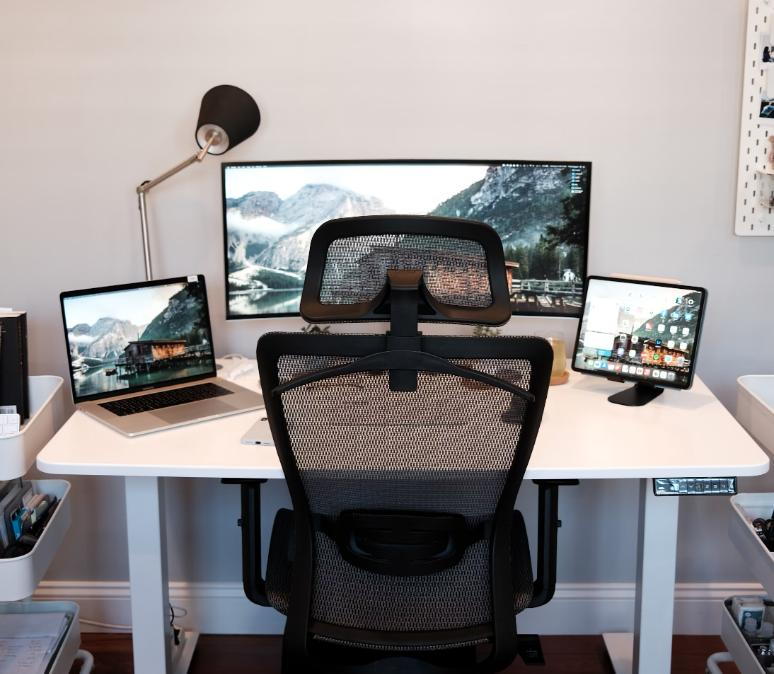
In today's day and age, many of us find ourselves spending prolonged hours sitting at a desk, whether for work, studying, or leisure activities. However, prolonged sitting can take a toll on our spinal health, leading to discomfort, pain, and long-term issues if not addressed properly. One crucial step in mitigating these risks is selecting the right desk chair—one that supports proper posture and helps maintain optimal spinal alignment. In this blog post, we'll explore the key factors to consider when choosing a desk chair to promote spinal health and reduce pain.
Ergonomic Design
When it comes to desk chairs, one size does not fit all. Look for chairs specifically designed with ergonomics in mind. These chairs are adjustable in various ways, allowing you to customize the seat height, armrest height, lumbar support, and recline angle to fit your unique body shape and size. Proper ergonomic support helps distribute your weight evenly, reducing strain on your spine and muscles. Try to find a chair that keeps your spine upright, neck supported, and knees at a 90 degree angle.
Lumbar Support
The lumbar region, or lower back, is particularly susceptible to strain when sitting for extended periods. A good desk chair should provide adequate lumbar support to maintain the natural curve of your spine. Look for chairs with built-in lumbar support or adjustable lumbar pads that can be positioned to fit the curvature of your lower back. This support helps reduce pressure on the lumbar discs and muscles, minimizing the risk of lower back pain.
Seat Depth and Width
The dimensions of the seat are also important considerations. Opt for a chair with a seat depth that allows you to sit with your back against the lumbar support while leaving a few inches of space between the edge of the seat and the back of your knees. Additionally, ensure that the seat width accommodates your hips comfortably without being too narrow or too wide, promoting proper weight distribution and reducing pressure points.
Adjustable Armrests
Armrests that are too high or too low can lead to shoulder and neck strain. Look for chairs with adjustable armrests that can be positioned to support your arms comfortably while keeping your shoulders relaxed and your elbows at a 90-degree angle when typing or using a mouse. This helps prevent tension in the shoulders and neck, promoting overall upper body alignment.
Breathable Material
Opt for a desk chair made from breathable, supportive material that allows air circulation to prevent heat buildup and keep you comfortable throughout the day. Mesh-backed chairs are a popular choice as they offer both support and breathability, reducing the risk of discomfort and sweat accumulation during prolonged sitting sessions.
Mobility and Stability
Consider the mobility and stability of the chair, especially if you tend to shift positions frequently or have a dynamic workspace. Look for chairs with swivel and tilt mechanisms that allow for easy movement without straining your back. Additionally, ensure that the chair has a stable base with casters suitable for your flooring type, enabling smooth movement without the risk of tipping over.
Budget and Quality
While budget constraints are understandable, investing in a high-quality desk chair is an investment in your spinal health and overall well-being. Quality chairs are often built to last longer and provide better support, ultimately saving you money on potential medical expenses due to poor posture or back pain.
Remember, even the best desk chair cannot replace the importance of taking regular breaks to stretch and move around throughout the day. Incorporating ergonomic principles into your workspace setup and daily routine can significantly contribute to maintaining optimal spinal health and reducing discomfort associated with prolonged sitting. By choosing the right desk chair and practicing good sitting habits, you can support a healthy spine and enjoy greater comfort and productivity in your daily activities.
